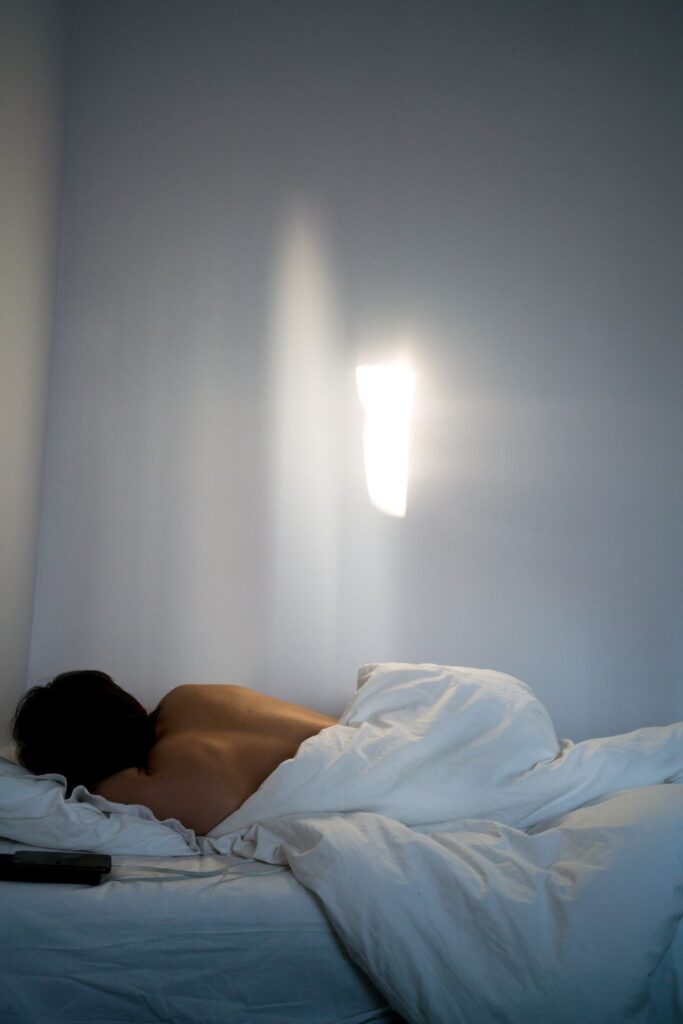Mental Well-Being, Wellness
Good Sleep Hygiene Habits
Are you tired of waking up in the middle of the night? Do you feel foggy and sleepy when you wake up? It’s time to put your sleep hygiene first. Getting enough sleep is critical for your overall health and well-being. In this article, we will discuss the significance of proper sleep hygiene and offer practical strategies for improving your sleep quality.
The Importance of Sleep Hygiene
A series of behaviors and activities that encourage improved sleep are referred to as sleep hygiene. Maintaining a consistent sleep schedule, providing a comfortable sleep environment, avoiding stimulants before bedtime, and practicing relaxation techniques are examples of these behaviors. You may establish a healthy sleep schedule and get the benefits of enhanced attention, concentration, and mood during the day by implementing these behaviors into your daily routine.
What is Sleep Hygiene?
Sleep hygiene refers to a multitude of measures that promote good sleep patterns. Maintaining a consistent sleep schedule is an important aspect of healthy sleep hygiene. This includes going to bed and getting up at the same time every day, including weekends. Maintaining a consistent sleep schedule allows you to regulate your body’s internal clock and encourage greater sleep quality.
Creating a sleep-friendly environment is another crucial part of sleep hygiene. Your bedroom should be a sleep sanctuary, free of distractions and discomfort. Check that your mattress and pillows provide enough support and comfort. To filter out any light that can interfere with your sleep, use blackout curtains or an eye mask. To create an ideal sleeping environment, keep the room cold, quiet, and well-ventilated.

The Effects of Poor Sleep Hygiene
Poor sleep hygiene can have serious consequences for your physical and emotional health. When you don’t get enough quality sleep, you may feel sleepy during the day, have problems concentrating, and have poor memory. Sleep deprivation can also damage your immune system, making you more vulnerable to sickness.
Furthermore, poor sleep hygiene has been connected to a number of health issues such as obesity, diabetes, and cardiovascular disease. It can also exacerbate mental health disorders including anxiety and sadness. As a result, it is critical to emphasize excellent sleep hygiene in order to preserve general health and well-being.

Establishing a Consistent Sleep Schedule
Establishing a consistent sleep schedule is a vital part of healthy sleep hygiene. Your body works best when it has a regular sleep-wake cycle. Even on weekends, try to go to bed and wake up at the same time every day. This constancy aids in the regulation of your body’s internal clock, making it simpler to fall and wake up naturally.
Set a bedtime that permits you to receive the appropriate amount of sleep for your age to establish a consistent sleep regimen. Adults typically require 7-9 hours of sleep every night, while teenagers may require 8-10 hours. Calculate your optimum bedtime by counting backward from the time you need to wake up, allowing yourself ample time to wind down before falling asleep.

Creating a Sleep-Friendly Environment
It is critical to create a sleep-friendly environment in order to improve your sleep hygiene. Your bedroom should be a relaxing and serene environment that promotes good sleep. Consider the following suggestions for creating an ideal sleeping environment:
Choose the proper mattress and pillows: The quality of your sleep is greatly influenced by your mattress and pillows. Invest in a mattress that is both comfy and supportive. Similarly, select pillows that provide enough head and neck support.
Maintain a cool temperature in your bedroom: Ideally between 60-67°F (15-19°C). A colder room temperature promotes better sleep by simulating the natural dip in body temperature that occurs during sleeping.
Reduce noise: Remove or reduce any noise that may interfere with your sleep. To block out undesirable sounds, use earplugs or a white noise machine.
Block out light: To generate perfect darkness in your bedroom, use blackout curtains, blinds, or an eye mask. This helps your brain recognize that it is time to sleep.
Remember that your bedroom should be mainly for sleeping and cuddling. Avoid utilizing it as a workspace or entertainment room because these activities can disrupt your sleep.

Avoiding Stimulating Activities Before Bed
Engaging in stimulating activities prior to going to bed can make it difficult to fall and remain asleep. It’s critical to avoid these activities in the hours before bedtime if you want to enhance your sleep hygiene. Here are some frequent activities to avoid:
Blue light: Light emitted by electronic gadgets such as cellphones, tablets, and computers might disrupt your sleep-wake cycle. Avoid using these devices for at least an hour before going to bed. If you must use them, consider wearing blue light-blocking glasses or utilizing blue light filters.
Caffeine and nicotine: These are both stimulants that might interfere with your sleep. Avoid drinking them, especially at night. Caffeine can be found in unexpected places, such as chocolate and some drugs.
Intense exercise: While regular exercise is excellent for sleep, strenuous activities close to bedtime might elevate your body temperature and excite your mind. Try to finish your workout at least a couple of hours before going to bed.
Heavy meals: Consuming a large meal before bedtime might induce pain and make it difficult to fall asleep. In the evening, choose lighter, more balanced meals.
Choose restful and peaceful hobbies instead of these stimulating ones. Take a warm bath, read a book, meditate or do deep breathing exercises, or listen to relaxing music.
The Impact of Exercise on Sleep Quality
Regular exercise has been shown to provide several health advantages, including increased sleep quality. Physical activity can help you fall asleep faster, sleep deeper, and wake up feeling more refreshed. Here are some ways that exercise can help you sleep better:
Promotes relaxation: Exercise can help decrease stress and increase feelings of relaxation. Physical activity causes the release of endorphins, which are natural mood boosters and can help you sleep better.
Regular circadian rhythm: Regular exercise can assist to regulate your body’s internal clock, commonly known as the circadian rhythm. You can improve your sleep quality and synchronize your sleep-wake cycle by exposing yourself to natural daylight during exercise.
Reduces anxiety and depression: Exercise has been demonstrated to alleviate the symptoms of anxiety and sadness, both of which can interfere with sleep. Exercise can indirectly enhance your sleep hygiene by enhancing your emotional well-being.
Aim for at least 30 minutes of moderate-intensity exercise most days of the week to gain the sleep advantages of exercise. However, avoid exercising too close to bedtime because it can enhance your awareness and make falling asleep more difficult.

Strategies for Managing Stress and Anxiety for Better Sleep
Stress and anxiety can have a negative impact on your sleep quality. Stress and worry can cause difficulty falling asleep, staying asleep, or having disturbed sleep. It is critical to employ appropriate stress and anxiety management measures in order to enhance your sleep hygiene:
Deep breathing: Progressive muscle relaxation and meditation are all relaxation techniques that can help you calm your mind and prepare your body for sleep. Incorporate these relaxing and stress-reduction practices into your sleep routine.
Create a nighttime ritual: A regular bedtime routine helps signal to your body that it’s time to wind down and prepare for sleep. Relax your mind and body by engaging in relaxing activities such as reading a book or taking a warm bath.
Journaling: Before bed, write down your thoughts and worries to help clear your mind and reduce anxiety. Consider keeping a gratitude diary or putting down any worries or to-do lists before going to bed to help clear your mind.
Seek help: If stress and anxiety are interfering with your sleep on a regular basis, consult a mental health expert. They can offer advice and practices to help you manage stress and sleep better.
You can effectively manage stress and anxiety by applying these measures, leading to higher sleep quality and general well-being.
Conclusion
Putting good sleep hygiene first has changed my life, giving me more energy and better sleep. Getting a good night’s sleep is something I do every day, and it has changed how I think about rest.
Having a normal sleep schedule gives me structure and helps my body’s natural rhythms work together, which makes it easier to relax and wake up. Making small changes to your surroundings, like turning down the lights and making sure the room is at the right temperature, can have a big effect on the quality of your sleep.
Staying away from exciting activities before bed has made it easier to fall asleep and made me feel calm. Making smart food choices and working out regularly can boost the benefits for your body and mind.
Relaxation methods are now a regular part of dealing with stress and anxiety, as people are aware of the strong connection between mental health and good sleep. I have changed how I do things now that I know good sleep hygiene is a lifelong responsibility.
Getting used to new habits took time and patience, but the positive changes showed that the work was worth it. The change from having sleepless nights to being more calm and energized shows how important it is to prioritize good sleep hygiene for lasting health. This article made me realize how important a good night’s sleep is for my health as a whole, and I will always remind myself to take care of myself.


